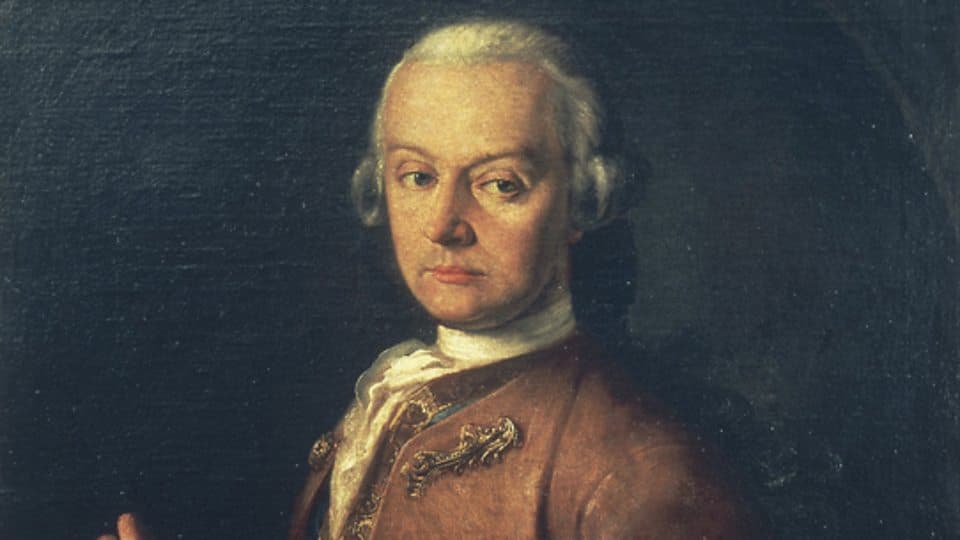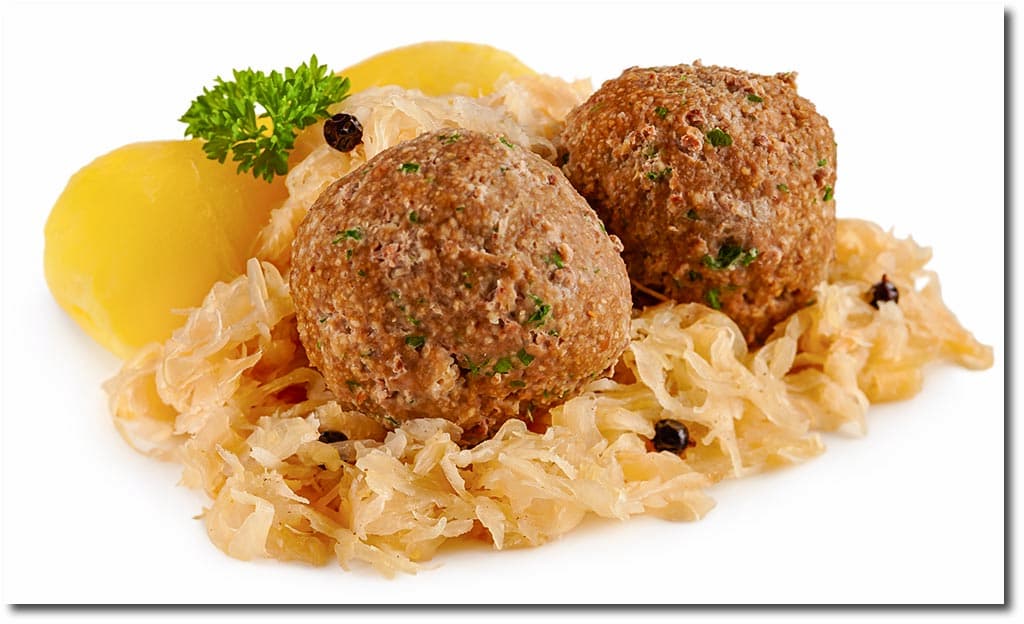A foodie connoisseur once wrote, “Food shares with music an enduring repertoire subject to interpretation.” And when we talk about Leopold Mozart, the emphasis is clearly on interpretation. He was a man prone to complain about most things, including the food he ate on his travels with his family. When they stopped in the Tyrolean Mountains on their way to Verona, Leopold Mozart reported to his wife. “We had some potted veal for lunch, accompanied by the most fearful smell; we washed it down with a few draughts of good beer as the wine was no better than a laxative.”

Leopold Mozart
But it wasn’t merely the food in the Austrian countryside that displeased Leopold; he also had great trouble getting used to Italian food. “Picture yourself in a more or less uncultivated country,” Leopold writes, “and the most horrible, filthy inns, where we got nothing to eat save here and there eggs and broccoli, while on fast days they sometimes make a fuss about giving us the former.”
Leopold Mozart: Sinfonia di caccia in G Major (New Zealand Chamber Orchestra; Donald Armstrong, cond.)
Apparently, whenever possible, Leopold kept his food choices simple when traveling. He wrote from Napes in 1770, “When we go out for supper, what do we eat? On ordinary days, half a chicken or a small slice of roast meat; on fast days, a little fish; and then we go to bed.” Italian cuisine wasn’t to Leopold’s liking, but nothing compared to his assessment of English food!

Liver Dumplings
“The food which they send us is horrible. For lunch, I get three courses: first of all, soup with some butter, which I detest; secondly, a little slice of very poor meat; thirdly, a slab of calf’s foot in some dirty sauce or a piece of liver as hard as a stone. We have never had soup in the evenings. I simply cannot describe to you the fast days, which are positively unendurable.”
When it came to food, Leopold was clearly a homebody and enamored with his wife’s culinary skills. One of his favorites was “Tafelspitz,” a succulent piece of boiled rump steak served with potatoes and garnished with shredded horseradish and carrots. And surely he must have tucked into some “Apfelstrudel” or the famous “Salzburger Nockerl,” a sweet soufflé served as a dessert.
For more of the best in classical music, sign up for our E-Newsletter
